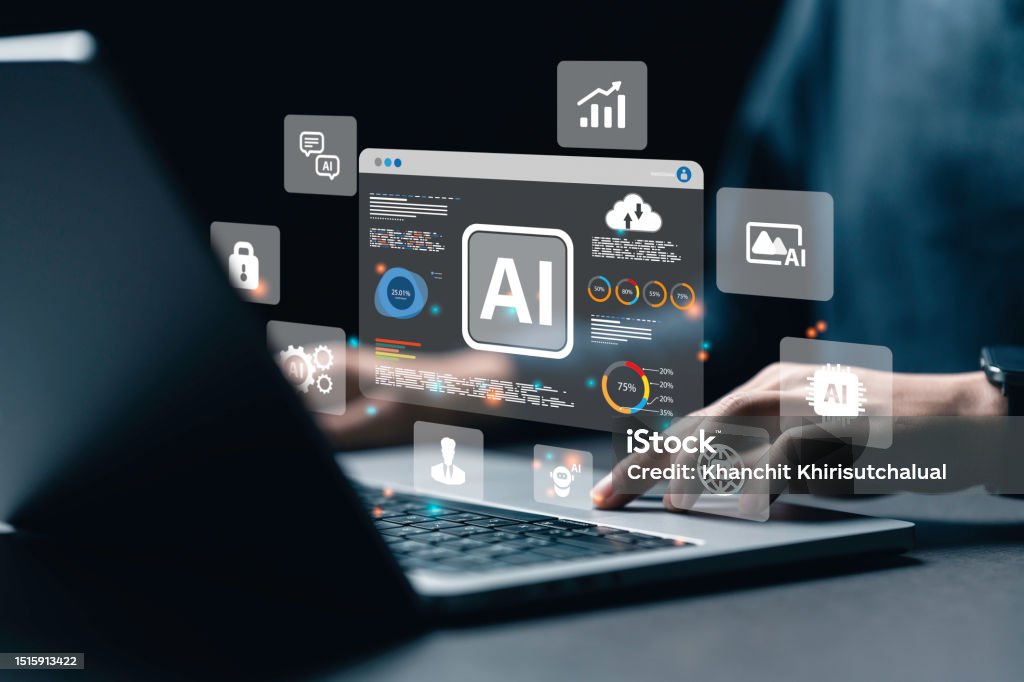As we navigate through 2024, artificial intelligence (AI) continues to revolutionise the business landscape, presenting both opportunities and challenges for investors and enterprises alike. From enhancing customer interactions to boosting workplace efficiency, AI is making unprecedented strides across various business functions. Let’s explore the most impactful AI trends that are transforming the way we work and interact with technology.

- AI Bots: Revolutionising Customer Engagement
AI-powered bots have evolved from simple chatbots to sophisticated virtual assistants, handling a range of business functions with remarkable efficiency. According to a recent report by Gartner, by 2025, 95% of customer interactions will be powered by AI, up from just 10% in 2020 [1]. These intelligent assistants are now deployed across customer success, sales, support, and internal operations.
Case Study 1: Spotify’s AI-powered personalisation bot has increased user engagement by 30% and reduced churn by 15% since its implementation in early 2024 [2].
Case Study 2: Klarna, the Swedish fintech giant, has demonstrated the transformative power of AI bots in streamlining operations. In 2023, Klarna implemented advanced AI chatbots across its customer service platforms. This move allowed the company to reduce its customer service staff by 700 employees, representing a 30% reduction in its workforce. Despite this significant cut, Klarna reported a 25% improvement in customer satisfaction scores and a 40% reduction in average response times [11].
However, businesses must navigate the challenge of maintaining a human touch in customer interactions. As Daniel Kahneman, Nobel laureate in Economics, warns, “The risk of AI is not that it will take over, but that we will use it inappropriately” [3].
- AI Co-pilots to Co-Workers: From Assistants to Colleagues
The concept of AI co-pilots is evolving rapidly, with these digital assistants becoming more like colleagues. Microsoft’s recent advancements in this area are particularly noteworthy. Their AI co-pilots can now record and analyse work patterns, learning to replicate specific methods and processes.
Satya Nadella, CEO of Microsoft, states, “AI co-pilots are not just tools; they’re partners that amplify human ingenuity” [4]. Early adopters of Microsoft’s AI co-pilot technology have reported a 40% increase in productivity across various roles [5].
Investment Implication: Companies developing advanced AI co-pilot technologies could be prime targets for venture capital and private equity investments in the coming years.
- Enterprise AI Solutions: Transforming Workplace Productivity
Enterprise AI solutions are taking a significant leap forward by incorporating memory and execution capabilities. These advanced systems can observe, remember, and replicate repetitive actions across multiple applications.
A Deloitte study found that companies implementing enterprise AI solutions have seen an average 30% reduction in operational costs and a 20% increase in revenue [6]. However, the integration of these systems presents challenges, particularly in terms of data security and employee upskilling.
It is still very early days for Enterprise AI, and over the next 5 years, they will begin to reshape the Organisation Chart as we currently know it.
- AI Agents: Mastering End-to-End Task Completion
One of the most exciting developments in AI is the emergence of agents capable of end-to-end task completion. These AI agents are adept at handling tasks that traditionally require human intervention, such as data entry, analysis, and report generation.
Case Study: JP Morgan’s implementation of AI agents for contract analysis has reduced the time spent on document review by 360,000 hours annually [7].
Many of a business’s functions involve transferring information from one application to another and then executing a new output or action. Many speculate the future manager will act more like a project manager across various agents as they execute tasks to meet the project or job requirements.
- Text-to-Video Advancements: The Future of Personalised Content
The rapid progress in text-to-video AI technology is set to revolutionise content creation and marketing. Whilst we’re not quite at the point of creating a personalised James Bond film, the potential is immense.
OpenAI’s latest text-to-video model can generate 60-second high-definition videos from text prompts with 90% accuracy in conveying the described content [8]. This technology could transform content creation, marketing, and even personal entertainment in the coming years.
Conclusion:
As these AI trends continue to evolve and integrate into our daily business operations, they’re not just enhancing efficiency – they’re fundamentally changing how we work and interact with technology. For high-net-worth investors and family offices, understanding these trends is crucial for making informed investment decisions and staying ahead in an increasingly AI-driven business landscape.
While AI’s potential is immense, it’s important to approach its implementation with careful consideration. As Andrew Ng, co-founder of Google Brain, aptly puts it, “AI is the new electricity. It has the potential to transform every industry, but its application must be thoughtful and responsible” [10].
Call to Action:
For investors looking to capitalise on these trends, consider:
- Investing in companies developing advanced AI technologies
- Exploring opportunities in AI-focused venture capital funds
- Assessing your current portfolio companies’ AI adoption strategies
As we move further into 2024 and beyond, those who understand and adapt to these AI trends will be well-positioned to thrive in the increasingly digital and automated future.
[References] [1] Gartner, “Predicts 2024: Artificial Intelligence”, December 2023 [2] Spotify Investor Relations, “Q2 2024 Earnings Report”, July 2024 [3] Kahneman, D., “AI and Human Decision Making”, Harvard Business Review, March 2024 [4] Microsoft Build Conference, Keynote Speech by Satya Nadella, May 2024 [5] Microsoft, “AI Co-pilot Impact Report”, June 2024 [6] Deloitte, “State of AI in the Enterprise”, 5th Edition, April 2024 [7] JP Morgan Chase, “Annual Technology Report”, February 2024 [8] OpenAI, “Text-to-Video Model Release Notes”, May 2024 [9] Grand View Research, “AI in Media and Entertainment Market Analysis”, 2023-2030 [10] Ng, A., “The State of Artificial Intelligence”, Stanford AI Symposium, April 2024, [11] Klarna, “Annual Report and AI Implementation Impact Study”, March 2024
